Japan House Tea Ceremony
The Prairie Fire crew make a return visit to the Japan House, located on the campus of the University of Illinois (you may remember our visit last spring to check on the Cherry Blossoms) to experience a traditional tea ceremony.
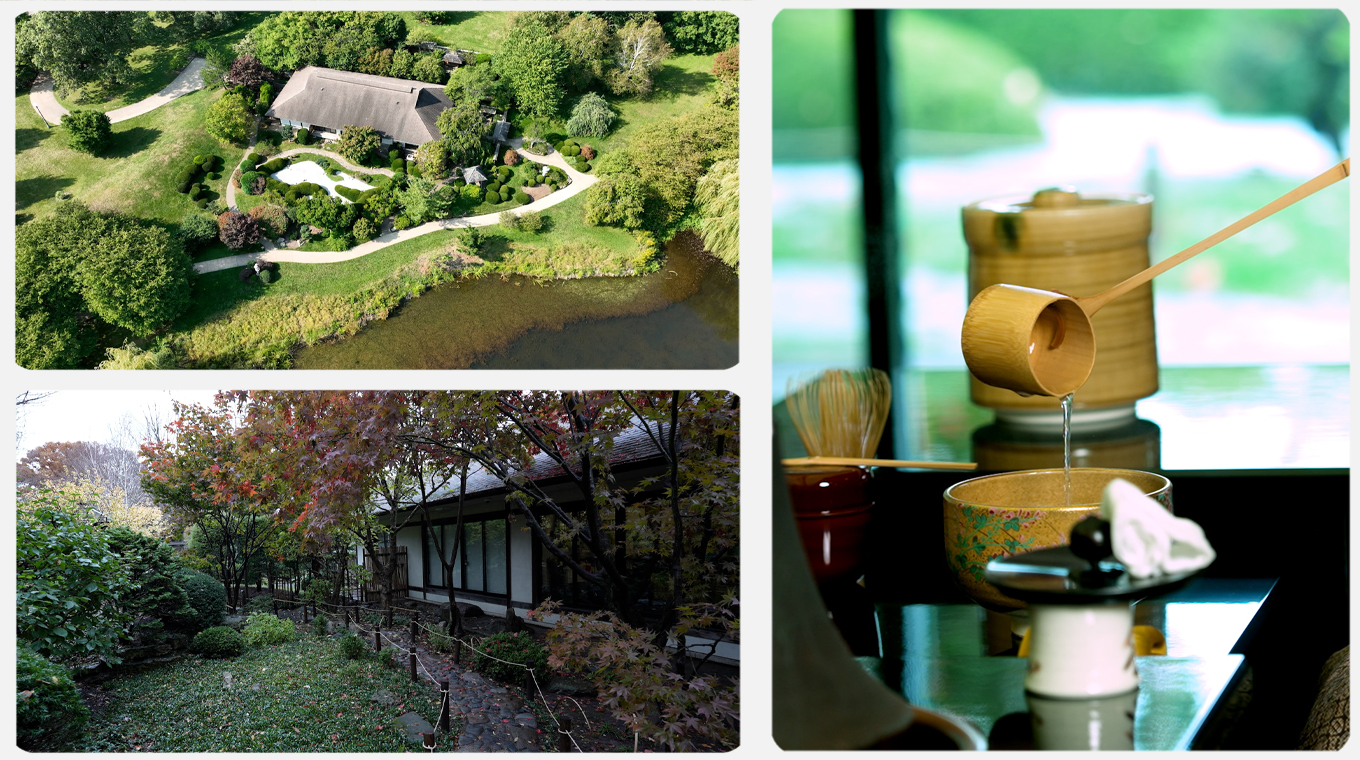
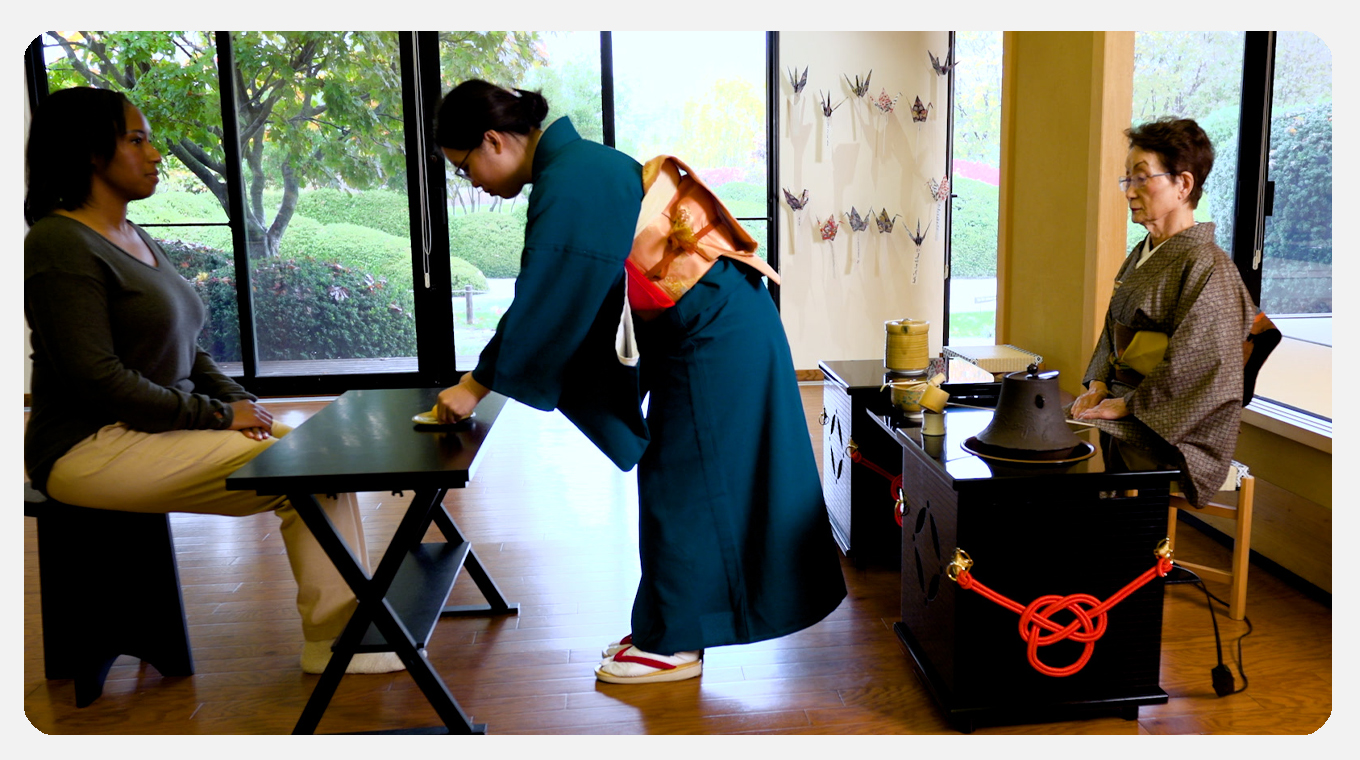
The very heart of Japan House is the study of the traditional Japanese tea ceremony. The tea ceremony has ancient roots in the culture of Japan. Urasenke is one of the main tea schools in Japan and Japan House is honored to be affiliated with the Urasenke Way of Tea.
Over the centuries the Urasenke Way of Tea flourished and with a more recent mission of expanding the practice of sharing a bowl of tea internationally, Urasenke has become the largest tradition of Chado in Japan and throughout the world.
The idea of a tea ceremony can sound mysterious, but at its most basic, a tea ceremony is merely a host preparing and sharing a bowl of tea with a guest. The ceremony has been ritualized over the centuries into an art form however, and is a practice that takes years and years to master. It is a fascinating peek into Japanese culture as well because it incorporates so many other Japanese art forms and aesthetics. For instance a tea ceremony can include shodo (calligraphy), or chabana (tea flower arrangements), or kaiseki (a formal tea dinner). So with this one art form, you can begin to find endless other lessons about Japanese culture.
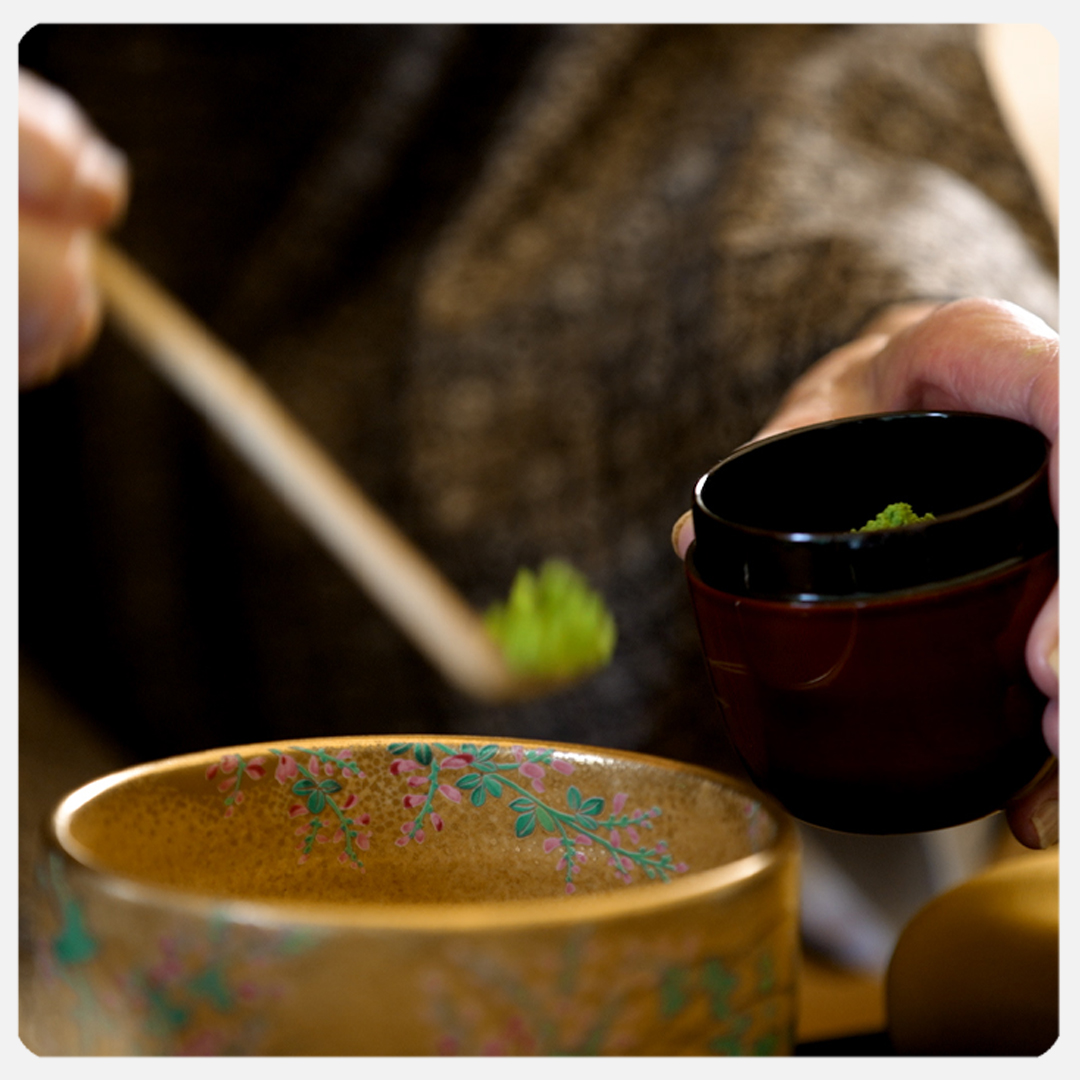
On our visit, we were treated to “ Ryurei with Misonodana”, 立礼 [御園棚], which loosely translates to a “Table style tea ceremony”, performed by Professor Kimiko Gunji, a tea instructor both in the US and Japan, and a Professor Emeritus at the University of Illinois.
Gunji hopes that the tea ceremony will inspire people to be kinder and more respectful in their daily lives, and will encourage everyone to appreciate the small moments and to treat those around them with kindness.
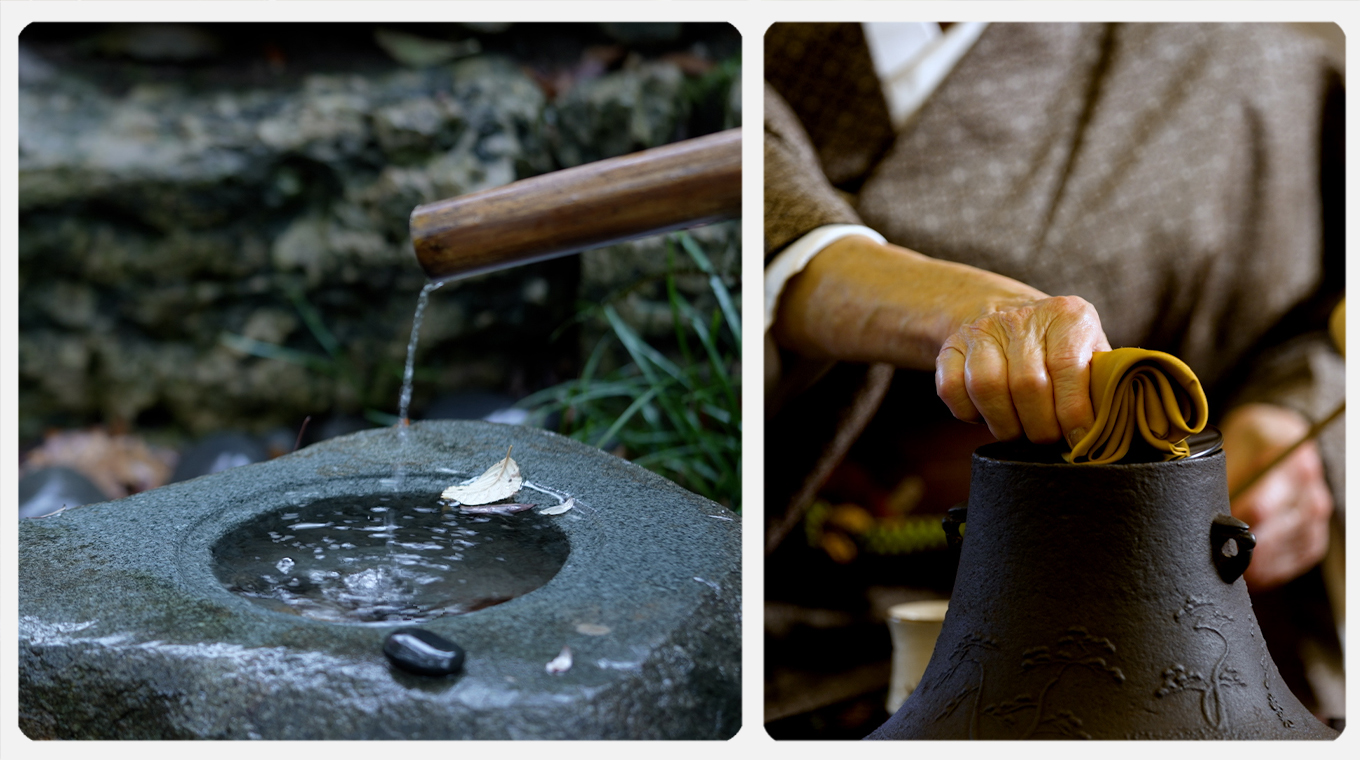
Professor Gunji also introduced us to the four precepts of the Way of Tea, put forth by Sen Rikyu (1522-1591), They include:
1) Harmony (Wa) 和
2) Respect (Kei) 敬
3) Purity (Sei) 清
4) Tranquility (Jaku) 寂
Rikyu also promoted his master Takeno Jōō's belief in "Ichi-go ichi-e," which translates to "one lifetime, one opportunity," a philosophy that each meeting should be treasured, it can only happen once in a lifetime. It emphasizes the importance of slowing down, recentering oneself, and appreciating ordinary moments, such as sharing a bowl of tea with loved ones.
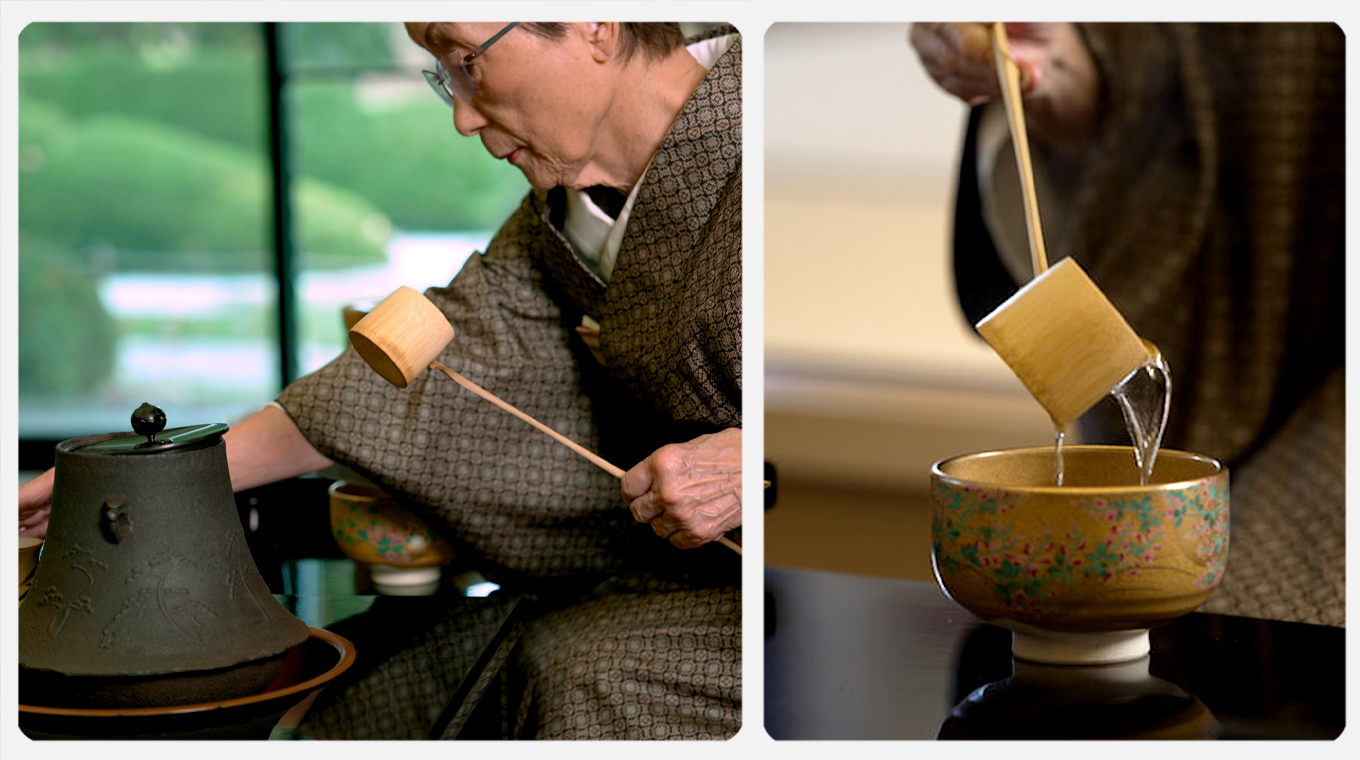
To find out more about Tea Ceremonies, everything else the Japan House has to offer, visit their website at japanhouse.illinois.edu or check out their Facebook page.

